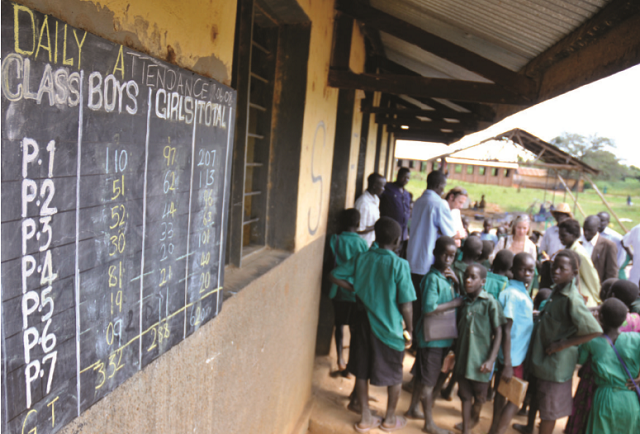
Sixth Uwezo survey finds learning outcomes consistently low
More children are going to school today. This is one of those achievements that the government picks on to show how they have transformed the country from education being a privilege of a few to being accessible to all. But, every time results of the Uwezo report are launched, debate rages over whether the government’s priority should be more children going to school or what they gain there – if at all.
For the sixth time, Uwezo, an East African region organisation that does surveys to assess learning achievements of school going children aged between 6 and 16 years in numeracy and literacy has found Uganda’s learning outcomes to be appalling.
For their latest report dubbed, ‘Are our children learning (2016)’, Uwezo assessed over 94,000 children from 112 districts in the country. Data was collected from more than 3,000 schools and 65,000 households.
Launching the report on Dec.16, the Uwezo Country Director Mary Gorretti Nakabugo said they found that by the time they reach primary 7, 2 out of 10 pupils still cannot do class 2 work.
“In P.3, almost 2 out of 10 P.3 children can read and understand a P2 English story, but 4 out of 10 cannot read an English word. In P.7, 2 out of 10 children cannot read a P2 English story,” she said.
The findings of the current report are not very different from previous ones. But they present a new twist showing deep inequalities between pupils attending privately paid education and those enrolled for government’s education for all programme through free Universal Primary Education. The report shows for P3 to P7 pupils, attending private schools boosts their competence over their government school peers by 17 percentage points in English, 10 percentage points in mathematics and 6 percentage points in local languages.
Also, for P3 to P7 pupils, attending privately paid remedial classes increases basic literacy and numeracy skills, English by 18 percentage points, local languages by 14 percentage points and numeracy by 10 percentage points.
While assessing, for instance, for levels of reading in English, children were placed on one of the five levels, ranging from the ‘non reader’ to `ability to read a short story’. Those who successfully read a story were asked two comprehension questions based on the content, if the child answered at least one of those questions correctly, he or she was considered to have achieved full competence in English literacy at P2 level.
In n numeracy, the children were assessed on number recognition and in the four basic arithmetic operations of division, subtraction, addition and multiplication which were given in assumed order of difficulty. Those who did division tasks had already passed the three.
For competence in local languages – Ateso, Runyakitara, Luganda and Leblango, Nakabugo said they used the same criteria as English. She said local languages were considered because in addition to them being on thematic curriculum, several studies have found that competence in one’s mother tongue affects second language acquisition and learning yet in Uganda acquisition of reading skills is slower in the local languages than in English.
Despite Uganda introducing the thematic curriculum in 2007, assessors found an extreme shortage of local language textbooks where by 49.9% of schools surveyed did not have these books. Also, a third of the mathematics and a quarter of the English classrooms, there were either no text books or only one for the teacher.
 The Independent Uganda: You get the Truth we Pay the Price
The Independent Uganda: You get the Truth we Pay the Price



